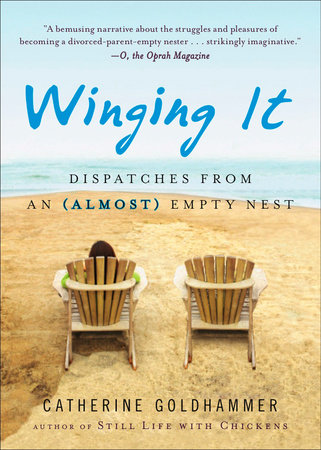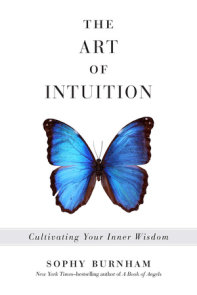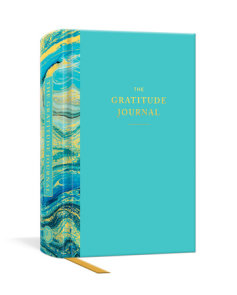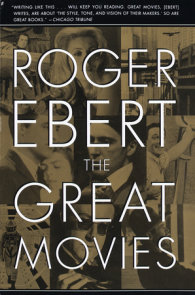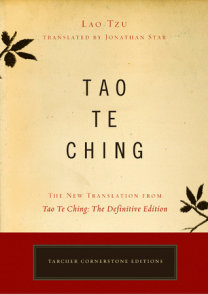READERS GUIDE
Questions and Topics for Discussion
INTRODUCTION
Catherine Goldhammer has just spent her first few years of midlife trying to create an entirely new existence for herself and her preteen daughter in a small coastal New England town – a transition she chronicled in her critically acclaimed memoir,Still Life with Chickens. Now, as her daughter Harper changes from preteen to teen to adult, Goldhammer realizes that the life she’s been building for them both is about to change again, as Harper prepares for college with a series of summer study programs and an (almost) endless search for the right high school.
Winging It, Goldhammer’s follow-up to Still Life With Chickens, retains the first memoir’s gentle humor and poignant self-examination while exploring this new period in the author’s life: the advent of the empty nest. As her daughter grows increasingly, and naturally, distant from their life together in the little cottage by the sea, Goldhammer realizes that she’s going to need to rebuild again. This time there will be less chicken wire, tile and spackle: instead, she’s thinking about refurbishing her existence through online dating, revisiting old friendships (and flames) and even digging out of storage an old dream or two.
Witty, self-effacing and forthright, Goldhammer’s voice will engage any reader who is facing a large, imminent change in his or her life, whether that change is the exodus of a beloved child or a sudden, newfound autonomy. Winging It, with its charming prose and insight, reminds us that for all of our anticipation and planning, life is going to throw us an endless array of new challenges and circumstances – and that with the help of family, friends, and a little improvisation, we will emerge stronger and wiser from the experience.
ABOUT CATHERINE GOLDHAMMERCatherine Goldhammer is a graduate of Goddard College and was a poetry fellow in the fine arts program at the University of Massachusetts. She has been published in the Georgia Review and the Ohio Review.
AN INTERVIEW WITH CATHERINE GOLDHAMMERWhat made you turn from writing poetry to memoir? Do you find prose more appealing than verse? Which do you prefer reading, and who are your favorite poets, novelists and memoir writers?
The concerns of my life began to lend themselves more to personal non-fiction than to poetry, or maybe I just wanted to write in a more straightforward way. However, though I rarely write poetry anymore, there is something enormously satisfying about striving for perfection within the limits allowed by the poem. My favorite poets include: Louise Gluck, Billy Collins, Robert Hass, Paul Zweig, T.S. Eliot, Dylan Thomas, and Wallace Stevens.
Current favorite novelists are Cormac McCarthey (The Road) and Marisha Pessl (Special Topics in Calamity Physics). In recent memoirs I enjoyed Augustin Burroughs’ Dry and Jeanette Wall’s Glass Castle quite a lot.
You write on your website that your daughter is a big fan of Still Life with Chickens. What does she think of your newest memoir? And how does (and did) your ex-husband, and other family members, feel about their inclusion in your books?
Both times I had her read the books before they were typeset so that I could make any changes she wanted me to make. I’ve been very careful to treat my ex-husband with the respect and fondness I have for him, and my family members have thus far been pretty excited about being in books.
By this book’s end, you have one remaining chicken left from the original six. Do you have any plans to acquire a new generation of chickens, or will your chicken-rearing days end with the “Parisian House Chicken”?
I won’t be getting more chickens, but I will be extremely sad when this last one dies.
What new dreams or plans have you come up with since finishing the memoir? Has Harper’s departure for college been easier or more difficult than you anticipated?
I’m not sure about dreams and plans yet. I’m still getting used to Harper’s departure. I miss her dearly, her daily presence and comings and goings, our conversations. But I am enjoying the discovery of my own rhythms and habits, and the feeling of myself as individual. She is enjoying that in her life as well.
Do you have plans to write and publish another memoir? What kind of writing are you currently working on?
I’ve promised myself not to write more memoirs, but we’ll see. I think for a memoir to work it needs to be about something universal, something that happens in one way or another to many people. Everyone starts over at some point. Every parent at some point lets go of their child. I don’t know if I have another universal moment in me! Enough about me! I’m working on a book about writing, a series of short essays on various aspects of being a writer, and I’m enjoying that very much. Beyond that, I’m stacking wood for the winter, and waiting to see what comes next.
DISCUSSION QUESTIONSThe central conflict in this book – the inevitable and impending departure of Goldhammer’s daughter, Harper, for college and adulthood – begins with her brief stay at a summer college study program when she’s fifteen. Discuss the ways in which this program acts as a catalyst for the rest of the book – what does the experience reveal to Harper, and to Goldhammer?
After her attendance at the college study program, Harper announces that she will not return to her old high school in the fall. Goldhammer and her ex-husband begin immediately searching for alternative schools. Did you ever feel that Goldhammer was too indulgent of her daughter’s desires, or did it seem reasonable and natural for the author to pursue – at such lengths – a possible alternate education for her teenager?
Soon after Harper returns from the study program, an old ex-boyfriend of Goldhammer contacts her via the mail and they begin a correspondence. Hunter and Goldhammer have a convoluted and volatile past – they’ve dated and broken up twice, and their relationship has included infidelity. Why do you believe Goldhammer continued her correspondence with Hunter throughout the book, and what did she gain (or lose) from it? How does her “new” relationship with Hunter fit into the central conflict of the book?
As Goldhammer tries to keep her daughter from moving too far away too early (to attend school at “A Deus”), she reflects on her reactions to Harper’s desires and demands and compares them with her mother’s type of parenting. How many of their differences do you think are the result of a generational gap? How many of their differences can be attributed to the fact that they’re two individuals? How would you describe Goldhammer’s approach to parenting?
Discuss Harper’s fascination with her mother’s past – from the old boyfriends to her mother’s education at the University of Massachusetts – and Goldhammer’s reluctance to overindulge in the “myth of [her] glorious past”. Why do you think Goldhammer is afraid of revisiting her ties to her old boyfriends and her past life as a poet? What do you think it says about the author that she no longer writes poetry, just as she no longer lives the kind of bohemian lifestyle that she once did in Cambridge?
When Goldhammer’s ex-husband Thomas decides to move from Richer-Than-Me to Hipper-Than-Me, it looks like the family may have found the solution to Harper’s high school problem – until it becomes clear that Harper would have to live in the town full-time. Discuss Goldhammer’s fantasy about moving to Hipper-Than-Me and indulging in a different life than the one she’d just spent years building in Six Mile Beach. What does this fantasy say about her emotional state at this time?
Eventually, Goldhammer discovers she cannot afford to move to Hipper-Than-Me, and she cannot fathom the idea of living without her daughter, so Harper moves back to attend the local high school in Six Mile Beach. Goldhammer regrets being unable to send her daughter to a better school and is surprised to discover that she’s an “educational snob”. Was this clear to you before it was clear to the author? How easy or difficult was it to sympathize with the author and her attempt to get Harper into better schools?
Goldhammer gets a chance to indulge in her fantasy of a more urban life when she’s invited to participate in a writers’ group in New York City. The experience turns out to be far less than she’d hoped for – but what does it affirm about her existence in Six Mile Beach?
At the beginning of the chapter “Returned to What”, Goldhammer relates how she was in the habit of inventing “imaginary pasts” for herself – to the bemusement or detriment of others, like her daughter and ex-husband, who believed her tall tales. How does this anecdote fit with the central conflict or dominant theme of the book? Discuss the ways in which it makes sense in the context of Goldhammer’s “character”, and/or how it ties in with the events described in the book.
In the summer preceding her senior year of high school, Harper signs up for a more extensive program of study at the Rhode Island School of Design, and Goldhammer must resign herself to six weeks without her only child. Discuss what happens once Goldhammer and Thomas drop Harper off at the college: the author finds herself in the opposite state of mind from what she’d hoped – unmotivated, messy, and despondent. While she admits this wasn’t ideal, she writes that “the ability to fall apart felt a little like fun”. How is this an indication of growth on Goldhammer’s part? How close is she, at this point, to letting her daughter go?
It is during Harper’s stay at RISD that Goldhammer attends her brother Andrew’s wedding and tries online dating. What did you think of her experiences? Discuss first her reaction to Laura and Andrew’s commitment to one another, and then her reluctance to actually meet “Kris Kringle” after they begin an email correspondence. Where does her lack of enthusiasm for dating fit into her “empty nest” experience?
At the memoir’s end, Goldhammer writes about taking Harper for (possibly) the last of their vacations to Riverbend, and about inviting her entire family to Thanksgiving at her house. What do these two events signal in Goldhammer’s life? What has changed or is changing? Are either, in any way, symbolic of Goldhammer’s quest to “let go”?









